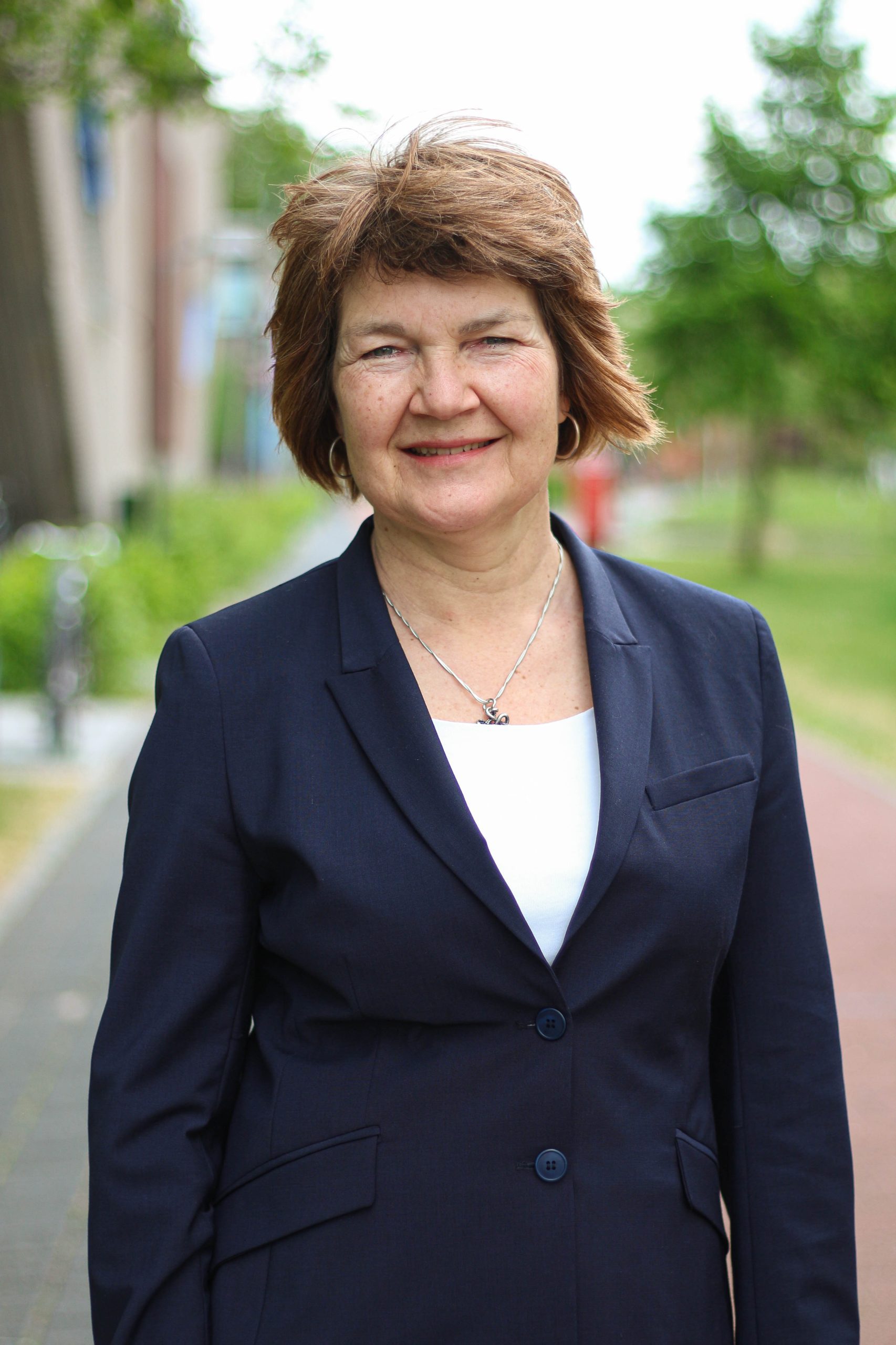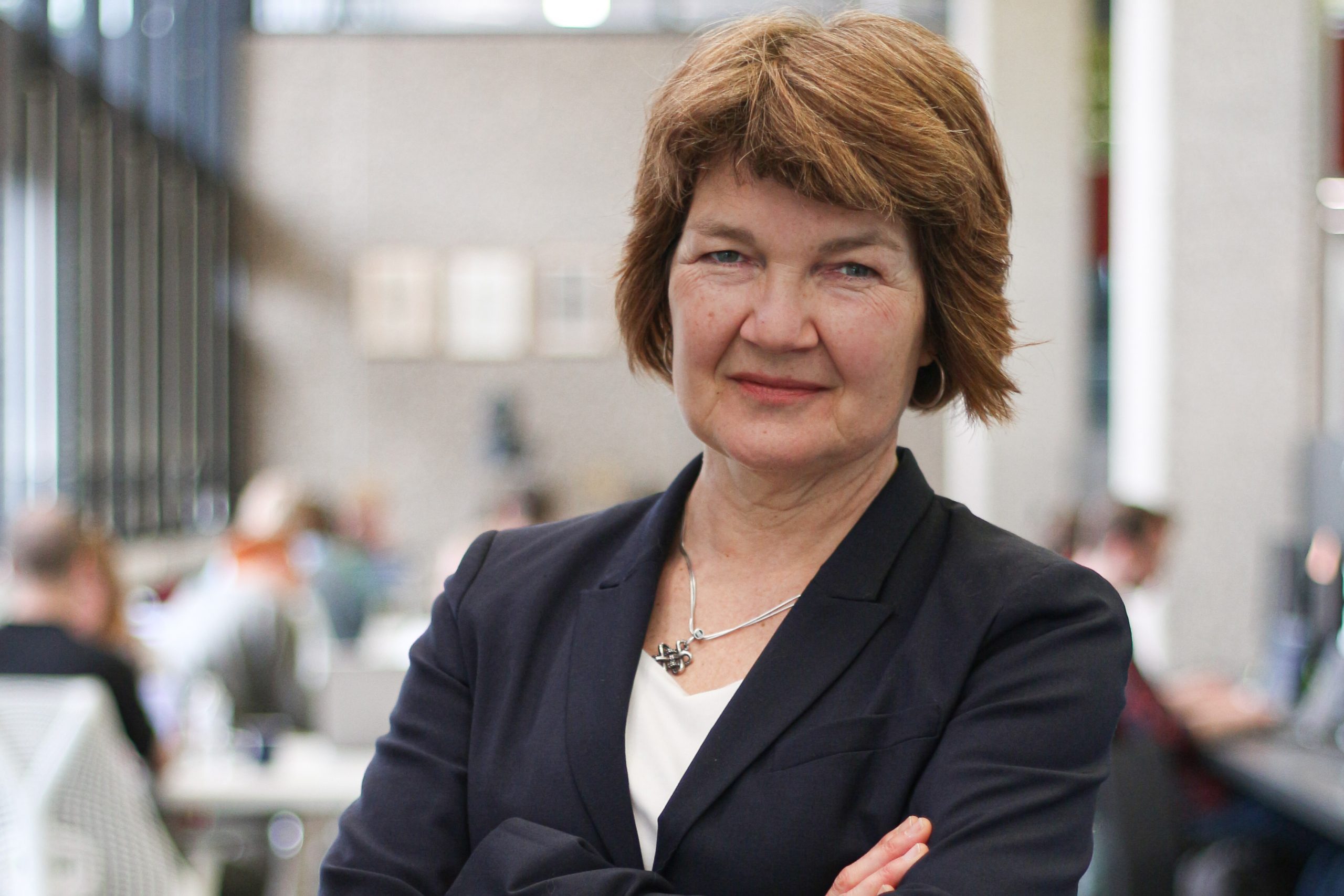Carin Wensveen was recently appointed as the student ombudsperson. How can she help? “The important thing is to solve conflicts so that the students in question can move on.”
Carin Wensveen: “I am used to dealing with people in conflict situations.” (Photo: Justyna Botor)
The Faculty of Civil Engineering and Geosciences does not only comprise students and academics. The fifth floor also houses the Human Resources Department, the company doctors and, since January 2022, two new ombudspersons, one for staff members and one for students. Their door is always open for anyone that needs help. What kind of help do they offer and how do they work? We meet them both in two interviews, starting with Carin Wensveen, Ombudsperson for students.
Wensveen was born in Delft and, while studying Dutch Law at Erasmus University Rotterdam, regularly saw TU Delft from the inside. She studied in the Library, ate in the canteen, and partied at the IDE festival. Now she is looking at TU Delft with different, professional, eyes, and is ‘overwhelmed’ by the size of it. A considerable job for someone who wants to get to know the organisation through and through.
Why is it important for an ombudsperson to familiarise themself with TU Delft so thoroughly?
“You can never meet everybody of course, but it is important to know who the key people are in the most important issues. I am now building up that network by attending meetings such as those of the Student Council. A good network helps improve the service, to be able to direct students to the right place such as the Complaints Desk or the student psychologists. Is also helps to have a better idea about the issues at play. Some things you will only hear in the corridors.”
‘There is room for improvement in the information provision’
For those students who don’t know, what is an ombudsperson for?
“Firstly, you can approach us for problems that are not addressed by the Central Complaints Desk as they do not fall under their remit or because their work does not lead to a solution. I saw 12 students during my first few months. This may not be a representative number, but students generally come to me with two issues. The first is study related about things like registrations, getting exemptions, tuition fees, other financial issues, and bad communication. The second, and where much attention is currently being paid, is social safety and transgressive behaviour. This last issue mostly rests with the Confidential Advisers, but if transgressive behaviour occurs regularly, students can come to me.”
How can students know who they should approach for what?
“I do not know how students take these decisions. There is room for improvement in the information provision about which functionary does what. My advice to students who are not sure who to approach is to just start somewhere and the person they approach will refer them on if they are not the right person. I realise that this could be disheartening, but doing something is always better than doing nothing.”
What is the first thing you discuss if a student approaches you?
“I always ask what the student has already done to try to solve the problem. There is often a whole email exchange with teachers or the Board of Examiners. Should there be a conflict with a Board of Examiners on a decision it has taken, I immediately advise the student to sign an appeal within six weeks. If they do not do so, it will be declared inadmissible. The case is then finished and I cannot do anything to set it right.
There is also always the possibility that there is more to it when a student has a conflict. I always ask a lot of questions. It could be that the person is stuck in a certain study problem, or that there are financial or psychological problems. In the last two cases, it could be better if the person sees a debt relief helper or a student psychologist. A combination is also possible. I can always refer the person on, including when I think they need legal advice.”
‘I am not a magician’
When is a case closed?
“I am not a magician. The most important thing is to solve conflict so that the emotions are not running high and the student in question can move on. During the Covid pandemic, people did not talk to each very much, while it really is better to see each other. I always recommend a good dialogue. Talk to each other, face to face. As an independent person I can arrange the contact and I do not always need to attend the discussion myself.”
This is your first job as an ombudsperson. What experience have you acquired that you can now use?
“I am used to dealing with people in conflict situations. As a family law lawyer, I did a mediation course and then started working as a mediator. Apart from this ombuds job, I still work in mediation. I am slowly starting to wind down my law practice, otherwise it will be too much.”
TU Delft has appointed you for 19 hours a week. How will you use that time?
“First and foremost, I will to talk to students who come forward. I am also spending a lot of time in getting to know people. I would also like to professionalise this position as there is no course for the work of ombuds functionaries in higher education and hardly any theoretical underpinning.
I can also signal trends and research. At this point in time I do not know what these are, so this is for the longer term. I do hear subjects like loneliness, discrimination, and sexually transgressive behaviour. It really is very serious that one out of 10 female students are raped during their study years.”
Do you get the impression that teachers are willing to cooperate if a student approaches you?
“I definitely have the impression that there is willingness to cooperate, in any case in giving information and explanations. This is the case even though many people at TU Delft are really busy. This does not help. Just try to make time available to sit down with a student for a good discussion. Many people will try to save time by sending an email and brushing off the complaint. I fear that the origins of some conflicts are intertwined in that way.”
- You can email Carin Wensveen, the ombudsperson for students or phone her on 015-2782389. Her office is located in room 5.11 in the CEG building.


Carin Wensveen (60) graduated in Dutch Law from Erasmus University Rotterdam in 1987. In 2002 she followed a training for all-round mediator at The Lime Tree and five years later she obtained a master’s degree in cultural anthropology at the University of Amsterdam. In 2008 she researched mediation and justice at the Erasmus University.
Wensveen began her career as a legal assistant at the municipality of Zandvoort and subsequently worked as a lawyer, policy and administrative advisor and teacher, among other things. Since 2010 she has combined a family law practice with being a mediator. Her appointment as student ombudsperson is initially for one year and can be extended to a maximum of six years. Wensveen has two children – both students – from a previous marriage and is with a new partner.
Do you have a question or comment about this article?
s.m.bonger@tudelft.nl


Comments are closed.